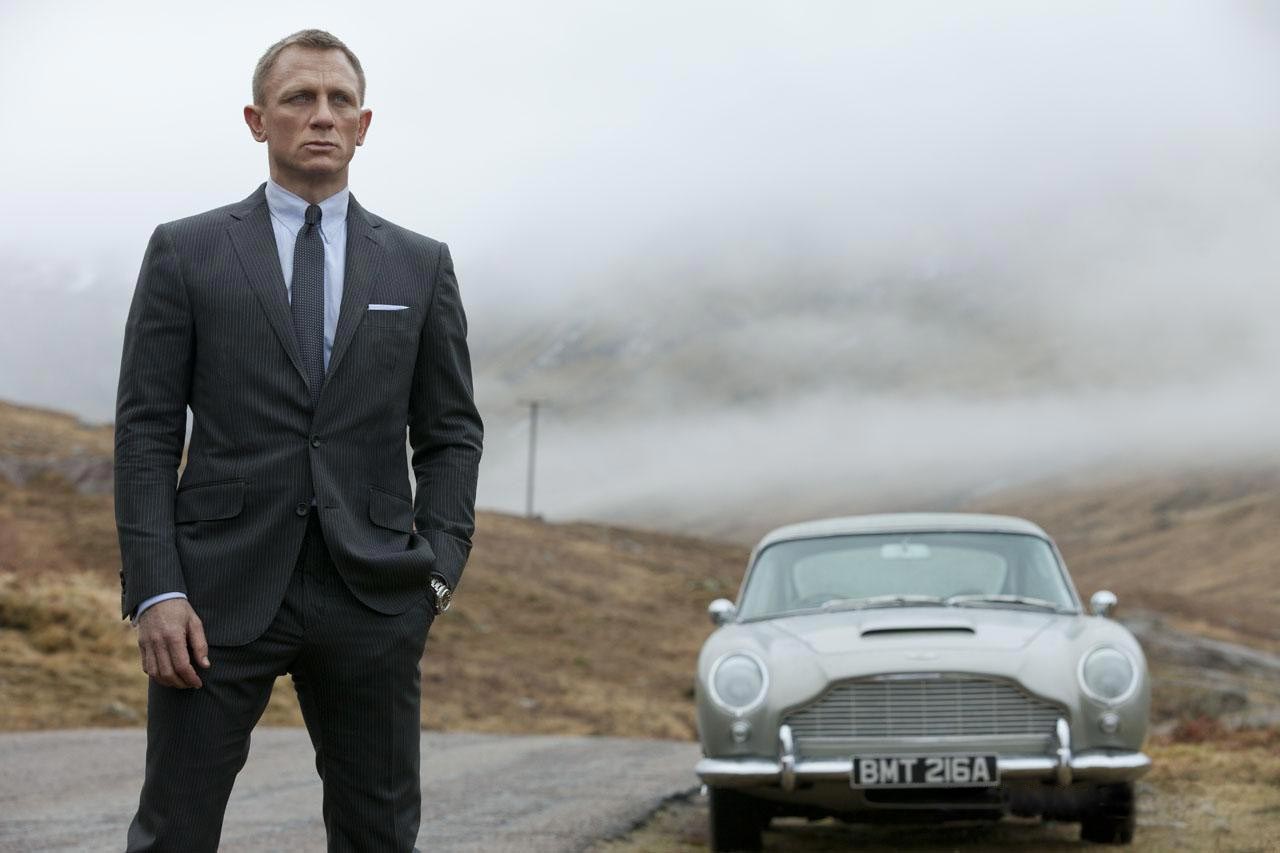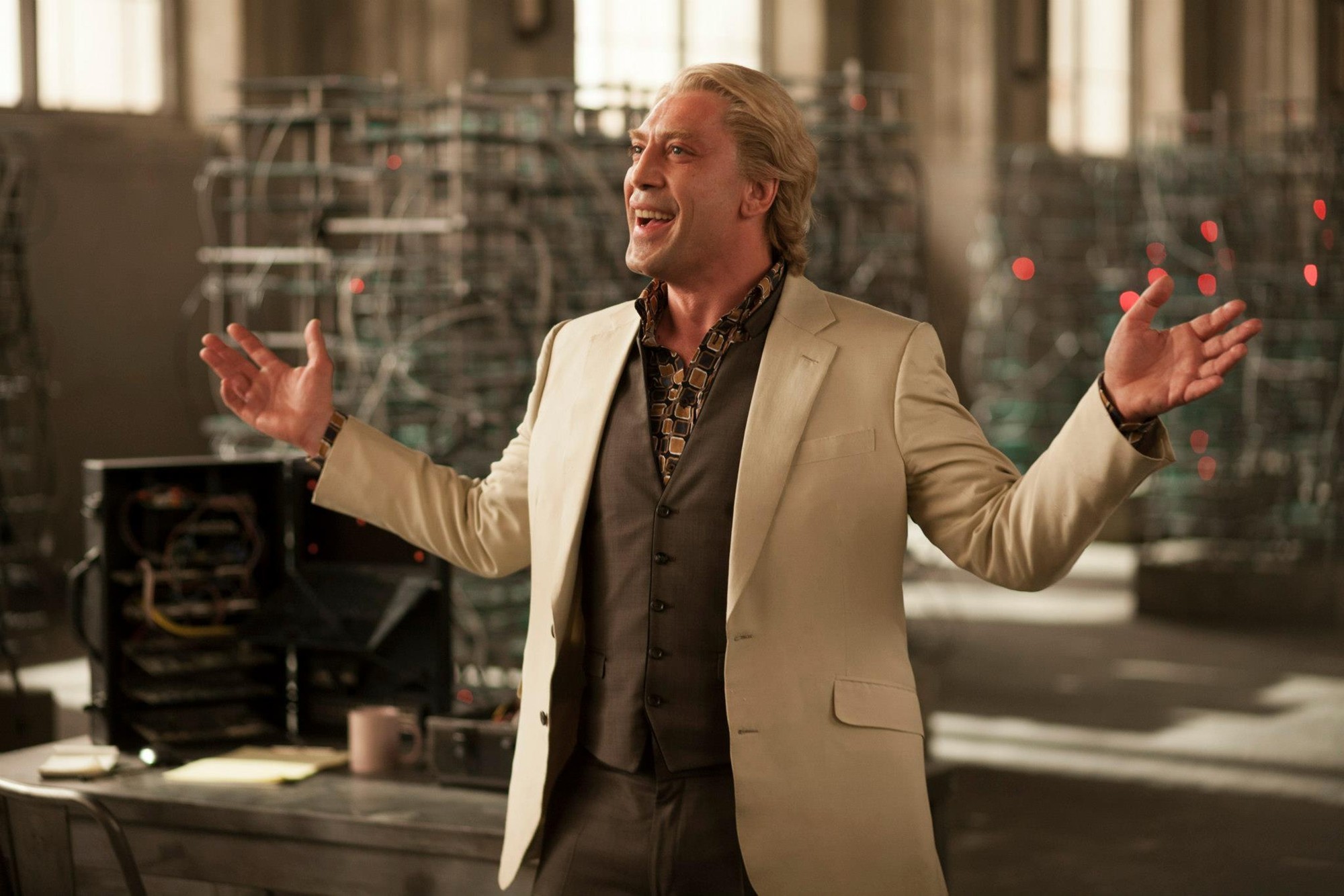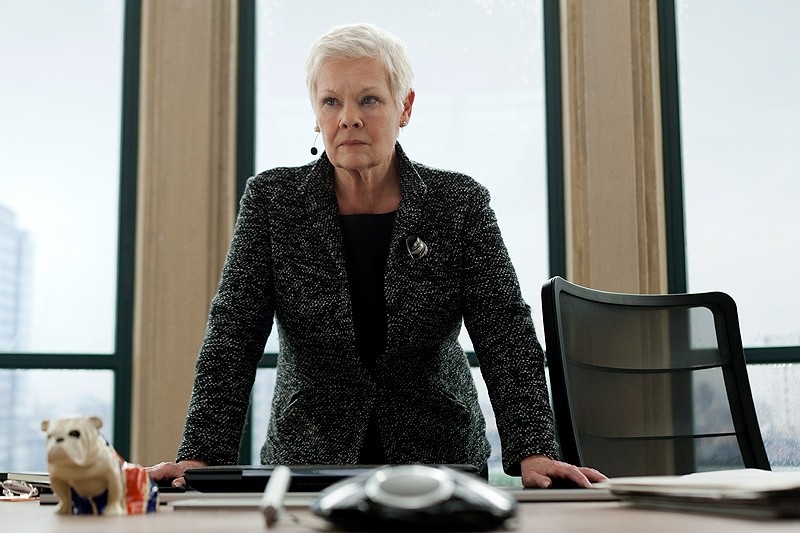Skyfall
Fifty years after the release of Dr. No, James Bond returns in Skyfall, the twenty-third instalment of the longest continually-running film series in history.

Daniel Craig in Skyfall
With so many films in the canon, it’s surprising that this is the first directed by an Oscar-winning director. Sam Mendes has assembled a cast most movie goers will recognise: Ralph Fiennes, Javier Bardem and Albert Finney play key characters in the movie.
This is Daniel Craig’s third outing as James Bond, although the narrative arc breaks away from that followed in the previous two films. Judi Dench, another series regular, returns as M with a role more pivotal to the story. From the official synopsis:
Bond’s loyalty to M is tested as her past comes back to haunt her. As MI6 comes under attack, 007 must track down and destroy the threat, no matter how personal the cost.
That past appears in the form of Raoul Silva, a former MI6 agent turned cyber terrorist gleefully portrayed by Javier Bardem. Silva, is a character tainted with just the right amount of comic book devilishness, and his origin story produces a grizzly reveal mid-way through the film. This, alongside his distinctive looks and exuberant style, easily rank Silva as the best Bond villain in a generation.

Javier Bardem as Bond villain Raoul Silva
Equalling Bardem’s performance, Daniel Craig wrestles the crown of best Bond away from Sean Connery. Having grown more comfortable in the role, his pithy one-liners sit more naturally within the dialogue. All the classic Bond mannerisms and traits are there, although again he orders his favourite drink without saying the immortal ‘shaken, not stirred’ line.
Unlike previous films, much of the action remains in the UK. This lends a different feel to the movie, and re-establishes Bond as someone who exists within the bounds of reality, far removed from the overly fictions elements that plagued previous movies.
While a treat for domestic audiences to see Bond running around the streets of London, the scenes set in more exotic locations – a bike chase across the rooftops of Istanbul, a fist fight in neon-drenched Shanghai, drinks in a Macau casino – are a reminder that Bond works best when furthest away from his desk. The luscious colours found in Roger Deakins’ stunning cinematography ensure these far-flung locations are visually arresting, contrasting with the more sombre palettes of Whitehall and the Scottish highlands.

The role of M, played by Judi Dench, is central to the story
There was product placement – something that has featured in Bond movies since the start – but thankfully this was achieved without any obvious ‘ca-ching’ moments.
That said, the real star of the movie is the iconic silver-birch Aston Martin DB5. Its appearance doesn’t so much give a subtle nod to the past, but knowingly transitions the story to another time, with features of the Goldfinger original used once more. Indeed, the camera is unable to turn itself away from the car’s sleek curves, and long lingering shots prevail from the moment it’s revealed to its eventual demise.
The return of the classic Aston Martin is just one way in which the fifty year anniversary is celebrated, and at times this self-referential aspect is delicately balanced. Yet, given the events and celebration around the golden anniversary, fans would have expected this. In that regard, Skyfall succeeds as a Bond movie for fans of Bond movies; a thank-you letter to an audience that has helped the series remain successful for so long.
There is also a sense that Skyfall offers a tiny course correction to the series. The 2006 reboot was brilliant and necessary, but a few aspects were missing. Not anymore. It will be interesting to see whether the new characters will work as well in subsequent movies, but given the back stories established here, I’m hopeful the series will remain contemporary while also true to Fleming’s original creation.
One thing hasn’t returned to the old way of doing things though: the gun barrel sequence is again seen at the end of the movie, prior to the credits. For shame!
Official trailer
Rebooted in 2006, and with its foundations now strengthened, I can’t wait for 007’s next assignment. Mendes has demonstrated that Bond can not only survive the stewardship of an established director, but be better for it. I’d love to see other British directors involved – where might Danny Boyle take Bond for example?
The series may be fifty years old, but thanks to Skyfall, Bond is better looking and more dramatic than ever. Here’s to Bond 24.